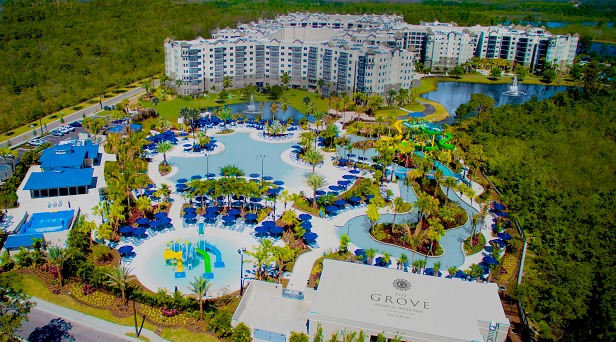Our seller financing program and the remote closing capability saved the deal for our Mexican buyer, who now owns a condo at The Grove.
In the past decade, international buyers have become an important economic engine for Florida’s real estate market, fueling incredible growth. When the COVID-19 pandemic hit the state, requiring a quarantine that nearly shut down US borders to foreign travel, it meant that developers were forced to be creative to enable purchase contracts made before COVID-19 to close. This challenge was particularly significant in the Orlando area, which is one of the world’s most visited destinations and a new real estate investment mecca for Latin American buyers.
According to the Florida Realtors Association, 55-percent of all international real estate buyers in Orlando in 2019 came from Latin America. The majority of buyers come from countries such as Brazil, Venezuela, Colombia, Mexico, the Dominican Republic and Argentina. Many are seeking to buy properties suitable for short-term rentals to meet the demand created by tourists visiting Walt Disney World, Universal Studios, SeaWorld and Orlando’s other numerous visitor attractions.
The trend with international buyers was expected to grow in 2020, but the Coronavirus has imposed new challenges for the market. For example, amid the pandemic, many lenders have left the marketplace for making loans to foreign buyers who are purchasing short-term rental properties. At the same time, foreign buyers have been unable to travel to the US to close transactions, threatening purchase contracts set to expire.
At The Grove Resort & Water Park, we have developed our own seller financing program that allows remote closings so buyers can close on the purchase of a furnished condo at The Grove from the comfort of their homes. The strategy has already begun to pay off.
For example, we recently had a buyer from Mexico who was looking to buy a property in the United States that he could rent to generate a monthly income in US dollars in order to protect his savings from the rapid devaluation of the Mexican peso. In January he stayed at our property, which is 10 minutes from the Magic Kingdom, fell in love with our vacation condo destination, and decided to purchase one of our resort-like condos. However, when the coronavirus hit North America, his lender in the US closed its doors. On top of that, the buyer was unable to travel to the U.S. to close on the purchase. That is when we realized we needed to develop our own solution to help buyers overcome these new barriers. Our seller financing program and the remote closing capability saved the deal for our Mexican buyer, who now owns a condo at The Grove.
Covid-19 Changes the Real Estate Business
The COVID-19 Pandemic has brought a lot of innovation to the real estate market, with projects like The Grove taking positive measures to ensure buyers can close without stepping foot in the U.S.A.
In a race against time to make sure buyers are able to close their contracts, those who fail to innovate often end up losing. Solutions like the ones we have implemented at The Grove Resort & Water Park are good for the buyers, the developer and real estate agents.
Not all developers have the flexibility to offer buyer financing. However, since mortgages for international buyers are almost non-existent today, those developers who can do it are closing many of their purchase contracts made prior to COVID-19. In these deals, developers are typically financing upwards of 50-55 percent of the purchase price, with the investor only paying interest for a period of time. Buyers are often approved for a mortgage within a week and a loan is closed in less than 30 days.
Orlando Still Affordable
For many international real estate investors, now is the best time to buy in Orlando, a city that has risen as a new investment destination for buyers of short-term rental properties. Prices are still low compared to other markets, such as Miami, where foreign buyers have been priced out of the market for a while now, and the condos offer a variety of amenities to attract hotel guests.
The economies in Latin America have grown at an average of only 0.7% per year in the last six years, and the Economic Commission for Latin America and the Caribbean anticipates a contraction in the region due to COVID-19. This makes investing in the U.S. and Orlando a good strategy for foreign buyers to fight devaluation of their currency and protect their wealth.
Source: .globest





